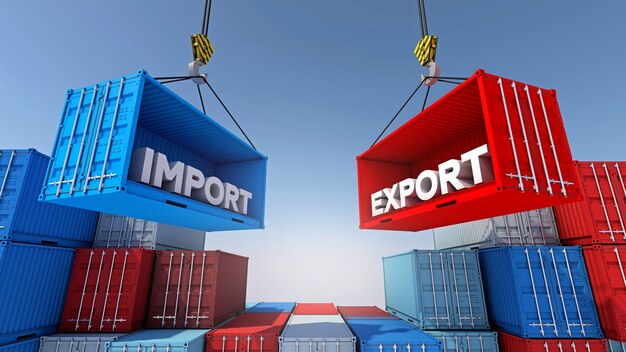Botswana, a country in Southern Africa with a growing economy, has become an increasingly attractive market for international trade. However, to successfully engage in import and export activities, businesses must understand and comply with the country’s import and export regulations. This guide provides an in-depth overview of Botswana’s trade regulations, key processes, and requirements to ensure smooth operations when importing and exporting goods.
Understanding Botswana’s Trade Landscape
Botswana’s strategic location, stable political environment, and membership in various regional trade agreements make it a hub for international trade in Southern Africa. The country has a strong focus on fostering a business-friendly environment, with trade regulations that align with international standards. The Botswana Unified Revenue Service (BURS) is the primary regulatory body overseeing trade activities, including the enforcement of customs and tax laws.
Key Import and Export Regulations in Botswana
- Customs Duties and Taxes
- Import Duties: Botswana imposes import duties on a wide range of goods, with rates varying depending on the product type. Customs duties can be calculated as a percentage of the customs value (the price paid for the goods plus shipping and insurance). Certain goods, like raw materials or products for manufacturing, may qualify for reduced or exempted import duties.
- Value Added Tax (VAT): Imports are subject to VAT at a rate of 12%, applied to the total value of the goods, including customs duties. Businesses engaged in export may be eligible for VAT refunds.
- Excise Duties: Goods such as alcohol, tobacco, and petroleum products attract excise duties, which must be paid before these products can be imported into the country.
- Import Licenses and Permits
- Depending on the type of goods, importers may need to obtain specific licenses or permits. This applies to sensitive or controlled items, such as pharmaceuticals, chemicals, agricultural products, and firearms. The Ministry of Investment, Trade, and Industry (MITI), along with other regulatory bodies such as the Botswana Bureau of Standards (BOBS), may require certifications or permits to ensure the safety and quality of products entering the country.
- For example, food products must meet health and safety standards set by BOBS, and businesses must obtain a Certificate of Conformity (COC) for certain imports to ensure they meet these standards.
- Export Regulations
- Botswana offers several incentives to businesses that engage in export activities, especially those involved in processing raw materials. While most products can be exported freely, specific items require export permits. These include wildlife products, certain minerals, and agricultural products that are subject to export quotas or restrictions.
- Export Permits: These permits are generally required for controlled goods such as precious metals, gemstones, and wildlife. Exporters must apply to the Ministry of Environment, Natural Resources Conservation and Tourism or other relevant departments for authorization.
- Trade Agreements and Regional Protocols
- Botswana is a member of several regional and international trade agreements that influence import and export regulations:
- Southern African Development Community (SADC): As part of the SADC Free Trade Area, Botswana benefits from preferential trade terms with other member countries, including reduced tariffs and streamlined customs procedures.
- Southern African Customs Union (SACU): Botswana is part of SACU, which allows free trade among its members (South Africa, Namibia, Eswatini, and Lesotho). Goods that originate within SACU can be traded without additional duties.
- World Trade Organization (WTO): Botswana adheres to WTO rules, ensuring that its trade practices align with global standards for non-discriminatory trade, anti-dumping regulations, and intellectual property protection.
- Botswana is a member of several regional and international trade agreements that influence import and export regulations:
- Customs Procedures and Documentation
- Customs Declaration: Both importers and exporters must submit customs declarations to BURS. This includes detailed information about the goods, their origin, and their destination. The Botswana Customs Declaration System (BCD) is used to file this information electronically.
- Bill of Lading: A bill of lading is a crucial document for both import and export transactions. This document serves as proof of ownership of goods and is required to clear goods through customs.
- Certificates of Origin: When exporting goods, businesses may need a certificate of origin to demonstrate where the goods were produced. This is particularly important for taking advantage of preferential trade agreements like SADC and SACU.
- Import and Export Restrictions
- Some goods face specific import and export restrictions due to health, environmental, or national security concerns. Examples of restricted items include:
- Hazardous Materials: Goods that pose a risk to public health or the environment may require special handling and transportation permits.
- Agricultural Products: Certain plant and animal products are subject to quarantine measures to prevent the introduction of pests and diseases.
- Waste Materials: Importing or exporting waste materials is heavily regulated, as Botswana aims to prevent the environmental degradation associated with hazardous waste.
- Some goods face specific import and export restrictions due to health, environmental, or national security concerns. Examples of restricted items include:
- Transportation and Logistics
- When navigating Botswana’s import and export landscape, transportation and logistics play a critical role in ensuring the timely and cost-effective movement of goods. Botswana’s transport infrastructure includes rail, road, and air networks that connect the country to international trade routes.
- The Botswana Railways provides rail services linking the country to neighboring countries like South Africa, Zimbabwe, and Zambia. Additionally, major airports like Sir Seretse Khama International Airport facilitate air freight services for quick deliveries of goods.
- Logistics service providers also play an important role in handling the transportation of goods, ensuring customs compliance, and managing documentation for smooth operations.
- Trade Facilitation and Business Support
- The Botswana Investment and Trade Centre (BITC) is a government agency dedicated to supporting businesses involved in import and export. BITC assists with market access, business facilitation, trade missions, and networking opportunities. It also provides guidance on meeting the necessary regulatory requirements for international trade.
Steps to Navigate Import and Export Regulations in Botswana
- Research Your Product: Before importing or exporting goods, research the specific regulations, taxes, and duties applicable to your products. Consult the BURS or other regulatory bodies to ensure that you meet all compliance requirements.
- Obtain the Necessary Licenses: Depending on the product, obtain any necessary import or export licenses or permits. Ensure that your goods comply with safety, health, and quality standards.
- Register with BURS: As an importer or exporter, you must register with BURS to obtain a tax identification number. This will allow you to file customs declarations and pay any applicable duties or taxes.
- Prepare Your Documents: Gather the necessary documents, including customs declarations, bills of lading, certificates of origin, and any other relevant permits. Ensure all information is accurate and complete to avoid delays in customs processing.
- Understand Tariffs and Taxes: Familiarize yourself with the applicable tariffs, duties, and taxes for both imports and exports. Use online resources or consult with a customs broker to ensure your business complies with all financial obligations.
- Engage with a Customs Broker: Consider hiring a customs broker who is familiar with Botswana’s import and export regulations. A broker can help you navigate the complexities of customs procedures and ensure compliance.
Navigating Botswana’s import and export regulations requires a clear understanding of the country’s trade policies, customs procedures, and licensing requirements. By staying informed and ensuring compliance with all regulations, businesses can take advantage of Botswana’s strategic position in Southern Africa and grow their international trade opportunities. Whether you are an importer, exporter, or logistics provider, following the proper procedures will streamline your operations and help you build a successful trade venture in Botswana.





